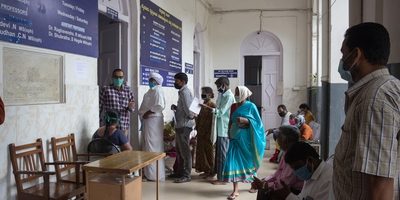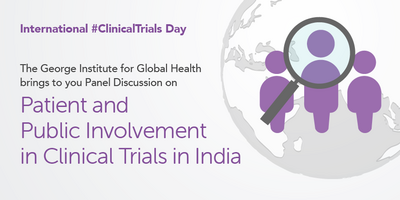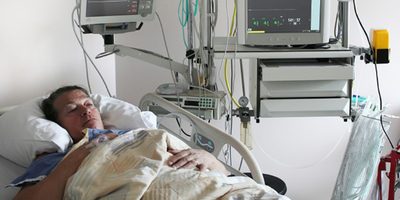
International Clinical Trials Day marked
Clinical researchers across Australia and around the world will pause this Tuesday 20th May to celebrate International Clinical Trials Day.
This significant date marks the anniversary of the day James Lind began the world’s first clinical trial to investigate the prevention and treatment of scurvy in 1747. Lind’s pioneering randomised controlled trial, which consisted of just 12 men and lasted only six days, provided the first reliable evidence that citrus fruits could cure scurvy.
Fast forward 250 years and clinical trials are the mainstay of our health care system, providing patients and clinicians with the best possible evidence about which treatments offer the greatest potential benefits.
Clinical trials are vital for advancing modern medicine - both in the commercial setting where companies test new drugs, devices and biomedical breakthroughs, and in the clinical setting to guide health professionals charged with recommending the best treatment options for patients.
Professor Paul Myles, Director of Anaesthesia at the Alfred and a Founding Director of the Australian Clinical Trials Alliance (ACTA) said: “Anyone who is admitted to hospital or visits a GP or a specialist in the community is benefiting from the knowledge we’ve gained from clinical trials.”
International Clinical Trials Day is an opportunity to acknowledge the selfless contributions of the many millions of patients each year who volunteer to participate in trials and the hundreds of thousands of doctors, nurses and other health professionals dedicated to generating better evidence for patient care through clinical trials.
ACTA’s Chair, Professor John Zalcberg OAM said: “We are incredibly fortunate to have many of the world’s leading clinical triallists based here in Australia.
“We have more than 35 specialised clinical trials networks and world class trial coordinating centres such as the NHMRC Clinical Trials Centre, the George Institute in Sydney and Monash School of Public Health and Preventive Medicine in Melbourne.”
Numerous trials conducted by these networks have saved lives or resulted in health gains for Australians. Their success is built on a shared dedication to improving outcomes for patients and a highly collaborative approach to conducting multicentre clinical research across a range of collaborating institutions, hospitals and practices around Australia as well as New Zealand and other countries.
“Well designed clinical trials require a critical mixture of expertise and goodwill. International Clinical Trials Day is an important opportunity to acknowledge each and every person who has ever conducted or participated in a clinical trial,” Prof Myles said.
High Impact Clinical Trials examples include:
- One of the most feared complications of anaesthesia is awareness or “waking up” during surgery.The B-AWARE trial of over 2,000 at risk patients proved bispectral index monitoring reduced the incidence of “waking up” by 80%.This has been incorporated in guidelines throughout the world and its use in Australian hospitals has grown more than 20‐fold following publication of the study.
- A large international trial demonstrated the drug tamoxifen could reduce by 1/3 the incidence of breast cancer in women at high risk of developing the disease.The Medical Oncology Group of Australia is working with PBAC to list this inexpensive therapy for prevention, and ongoing research is developing a tool to assist GPs in identifying women at increased risk who might be suitable for this approach.
- The NICE‐SUGAR trial, led by The George Institute for Globaly Health, studied 6000 critically ill patients who were being treated in an Intensive Care Unit to evaluate the effect of tight control of blood sugar, which was the global standard of care at the time of the study. Contrary to expectations tight blood glucose control worsened mortality. These results mean there are now 3 fewer deaths for every 100 patients treated in Intensive Care Units.
- The PROGRESS trial, led by The George Institute for Global Health, tested the hypothesis that blood pressure lowering after stroke or transient ischemic attack would protect against subsequent stroke events. This proved to be the case and practice was changed world‐wide as a result.
About the Australian Clinical Trials Alliance (ACTA)
ACTA was established in 2013 to support the some 50 clinical trials networks, trial coordinating centers and clinical quality registries that conduct important public-good research within hospitals and primary care settings across Australia.
These networks are collaborative groups that involve up to several hundred senior doctors, nurses, allied health professionals and researchers. They are uniquely capable of identifying where there is poor evidence to guide treatment decisions and conducting well-designed clinical trials that provide evidence to help patients, health professionals and governments make the best possible decisions about health care.








